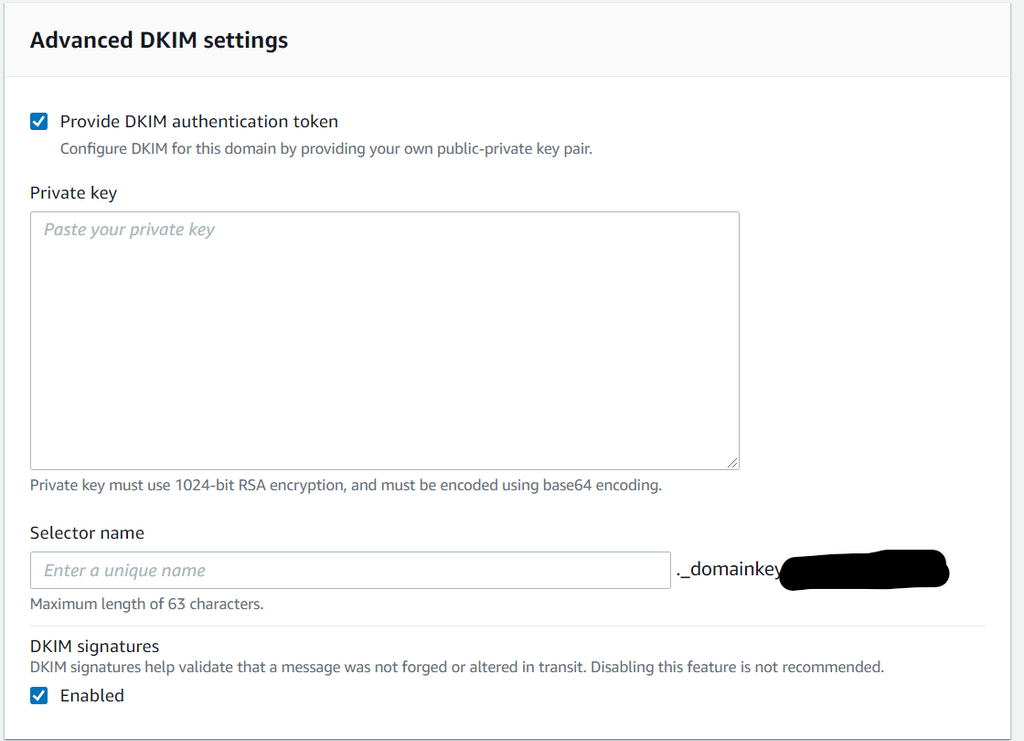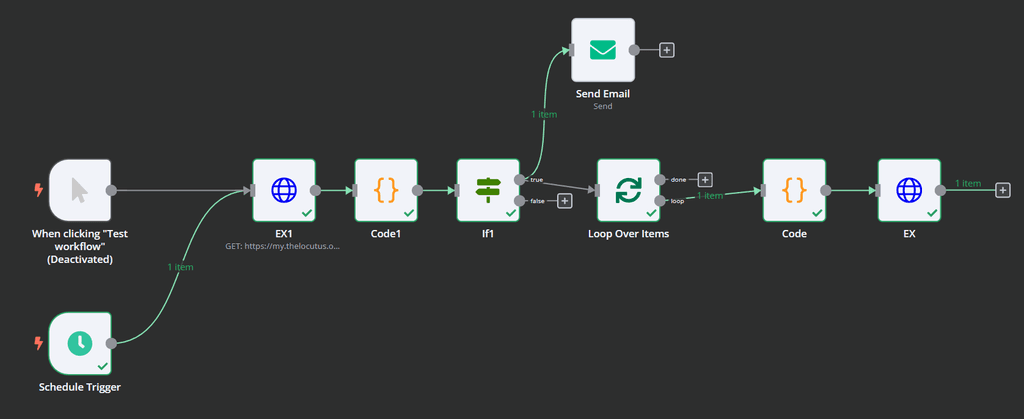Hello,
Any chance of seeing oragono?
It's a complete ircd+services package which has an official docker repo and seems to support ldap out of the box.
https://github.com/oragono/oragono
Thanks in advance!
Hello,
Any chance of seeing oragono?
It's a complete ircd+services package which has an official docker repo and seems to support ldap out of the box.
https://github.com/oragono/oragono
Thanks in advance!
Hello,
I'm trying to set SES for my Cloudron, and I've encountered a problem with your documentation.
The docs mention "Go to Amazon SES dashboard and add a new domain to verify under Domains. Leave the Generate DKIM Settings unchecked since Cloudron has already generated DKIM keys".
There's no such option in SES.
The only two options are "Provide DKIM authentication token", and "DKIM signatures" (Which can either be enabled or disabled).
Using Cloudron's DKIM private key isn't possible, because then Amazon requires us to set a CNAME with a hostname (cloudron._domainkey. ) that is similar to the TXT field that Cloudron already sets, which isn't allowed.
So do your documents only refer to the signatures field?

Thanks in advance.
In case anyone needs it, I added support to dismiss the notification.
After the if node, assuming true, add another connection, a 'Loop over items' node, with a batch size of 1.
Connect the node's "loop" connection to a new function node with this code.
// Access the input JSON data
const item = $json;
// Ensure the structure is correct and 'filteredID' exists
if (item.filteredID && Array.isArray(item.filteredID) && item.filteredID.length > 0) {
const notificationId = item.filteredID[0]; // Extract the first ID
// Return the data for the HTTP Request node
return {
json: {
notificationId: notificationId,
acknowledged: true
}
};
} else {
throw new Error("Invalid JSON structure or 'filteredID' not found.");
}
Then, connect the function node to a new HTTP request node with the method of 'POST', URL of "https://my.cloudron.site/api/v1/notifications/{{ $json.notificationId }}" (As an expression), same authorization header as the first HTTP request nodes, with the (JSON) body of:
{
"acknowledged": true
}
I'm pretty sure this process can be written better, but this approach was quick and dirty. I've also adjusted the notifications to be sent via email rather than using NFTY, but that's a pretty straightforward step.

Whenever I try to sign up, I keep getting the error below.
I tried setting it up with and without OAuth support without success. When I do use the OAuth login option, I get another error complaining that the OAuth login failed (right when I press the button). Any ideas?
Invalid or missing XSRF token. Please reload the page and try again.
(CSRF token invalid)
{
"headers": {
"normalizedNames": {},
"lazyUpdate": null
},
"status": 403,
"statusText": "OK",
"url": "https://comments.somesite.com/api/auth/profile",
"ok": false,
"name": "HttpErrorResponse",
"message": "Http failure response for https://comments.somesite.com/api/auth/profile: 403 OK",
"error": {
"id": "xsrf-token-invalid",
"message": "XSRF token is missing or invalid",
"details": "CSRF token invalid"
}
}
I had the same problem as you did. Turning off the discourse-follow plugin resolved the issue for me. It could be either that or one of your other plugins.
I just realized what the problem was. I'm not sure if it can be fixed here or upstream.
I had PIxelfed installed on my root domain (While Comentario was installed on a subdomain in the same domain). Once I removed the cookies for Pixelfed, it started working again.
Same problem with FIrefox.
This might be related to this issue.